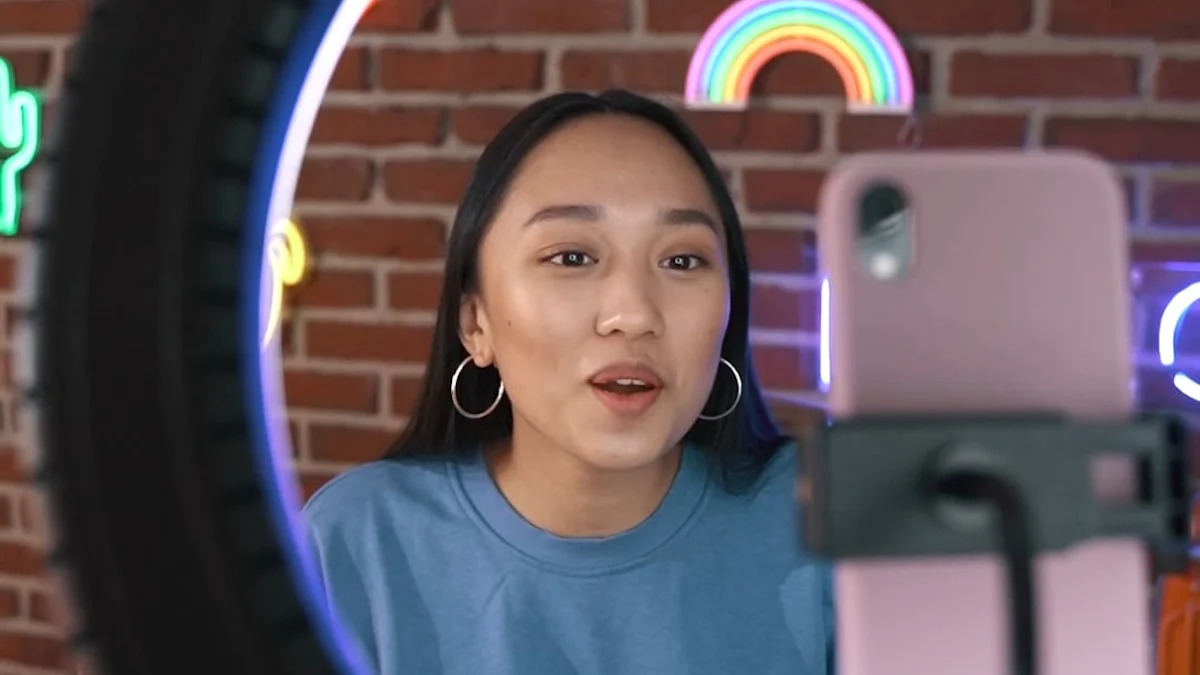Influencer Marketing Manager Job Trends Shaping the Future

Have you noticed how influencer marketing is taking over the digital world? By 2025, the demand for influencer marketing manager jobs is set to skyrocket. Just look at the numbers: the industry grew from $1.7 billion in 2016 to a staggering $21.1 billion in 2023. Companies are pouring resources into this space, with 53% of teams reporting bigger budgets for influencer campaigns. Why? Because these managers don’t just run campaigns—they shape brand strategies. They build trust, foster community engagement, and drive results through authentic collaborations. It’s no longer about short-term wins. It’s about creating lasting connections with influencers and their audiences.
The Role of an Influencer Marketing Manager in 2025

Core Responsibilities
As an influencer marketing manager, your role in 2025 will revolve around creating impactful strategies and managing campaigns that deliver results. You’ll need to juggle multiple responsibilities to ensure success. Here’s what your day-to-day might look like:
- Develop influencer marketing strategies that align with your brand’s overall goals.
- Research the market and analyze competitors to stay ahead of trends.
- Evaluate influencers based on their audience demographics and engagement rates.
- Build strong relationships through personalized outreach and consistent communication.
- Oversee influencer campaigns, ensuring they run smoothly and stay within budget.
- Track performance metrics and create detailed reports to measure success.
- Stay compliant with legal and regulatory guidelines.
Your ability to manage these tasks effectively will set you apart. Whether you’re negotiating contracts or monitoring campaign performance, you’ll play a key role in shaping your brand’s image.
| Responsibility | Description |
|---|---|
| Strategy Development | Create strategies that boost brand visibility and drive conversions. |
| Influencer Discovery | Find influencers who align with your brand’s values and audience. |
| Outreach | Negotiate contracts and set clear expectations with influencers. |
| Campaign Management | Ensure campaigns run smoothly from start to finish. |
| Performance Measurement | Analyze metrics to optimize future strategies. |
| Compliance | Make sure campaigns follow all legal requirements. |
| Industry Monitoring | Keep up with the latest trends in influencer marketing. |
Evolution of the Role
The role of an influencer marketing manager has evolved significantly. In 2025, you’ll notice a shift from short-term influencer campaigns to long-term partnerships. Why? Because long-term collaborations build trust and authenticity. When influencers genuinely connect with your brand over time, their credibility skyrockets. This consistency also ensures your brand’s messaging stays cohesive. Plus, it’s more cost-efficient. Instead of managing multiple short-term deals, you can negotiate better rates and get more value from extended partnerships.
Another major change is the reliance on data-driven decision-making. You’ll use advanced analytics to measure campaign performance and optimize strategies. Numbers will guide your choices, helping you focus on what works. Whether it’s tracking ROI or analyzing audience engagement, data will be your best friend.
In this evolving landscape, your role will go beyond managing campaigns. You’ll become a strategic leader, shaping how your brand connects with audiences through influencer marketing.
Key Trends Shaping Influencer Marketing Manager Jobs

Long-Term Influencer Partnerships
Building long-term relationships with influencers is no longer just a nice-to-have—it’s a must. Why? Because these partnerships bring stability, authenticity, and better results for your brand. When you work with influencers over time, they become more familiar with your products, leading to higher-quality content and stronger audience trust.
Here’s what you gain from long-term collaborations:
- Higher sales as influencers share more content, boosting brand recognition.
- Consistent messaging that reinforces your brand identity.
- Honest communication that fosters authentic storytelling.
- Cost-efficiency since you can negotiate better rates for extended deals.
- Risk reduction by ensuring influencers don’t endorse competitors.
Trust and brand alignment play a huge role here. When influencers genuinely connect with your brand, their content feels more real. This connection builds credibility, which is key to winning over their audience.
AI and Automation in Influencer Marketing
AI is transforming influencer marketing. It’s like having a super-smart assistant that handles the heavy lifting. AI tools can analyze massive datasets to find influencers who match your target audience. They also predict campaign performance, helping you make smarter decisions.
Automation takes it a step further by streamlining repetitive tasks. Imagine automating influencer outreach, content approvals, and performance tracking. This frees up your time to focus on strategy. Plus, real-time reporting tools let you monitor engagement and ROI instantly. With these advancements, you can scale your campaigns without sacrificing quality.
Community-Driven Strategies
Micro-communities are the future of influencer marketing. Instead of targeting broad audiences, you can engage smaller, niche groups that share specific interests. These communities value authenticity, making them perfect for user-generated content.
User-generated content adds a personal touch to your campaigns. When influencers share real experiences with your products, it feels genuine. Their followers trust them, which makes your brand more relatable. This approach also encourages creativity, as influencers craft stories that resonate with their unique audiences.
By focusing on these trends, you’ll stay ahead in the ever-evolving world of influencer marketing.
Diversification of Platforms
Exploring new platforms like podcasts and live events
You’ve probably noticed that influencer marketing is no longer limited to traditional social media platforms. Brands are now exploring exciting new spaces like podcasts and live events to connect with audiences in fresh ways. Podcasts, for example, offer a unique opportunity for influencers to share in-depth stories about your brand. Their loyal listeners trust their recommendations, making this a powerful channel for authentic engagement.
Live events are another game-changer. Imagine influencers hosting product launches or workshops where they interact directly with their followers. These events create memorable experiences that strengthen your brand’s connection with its audience.
Some brands are even taking it a step further. Companies like Arm & Hammer and Snapdragon are integrating influencer-created content into programmatic ad inventory. This means you can now see influencer content in display ads or even on connected TV platforms like Roku and YouTube. These trend-driven strategies are reshaping how brands reach their target audiences.
Expanding beyond traditional social media
If you’re sticking to just Instagram or TikTok, you’re missing out. Expanding beyond traditional social media opens up new opportunities for growth. For instance, creator marketing agencies like Props are helping brands use influencer content in programmatic advertising. This approach allows you to reach audiences through channels like Google’s DV360 or connected TV.
By diversifying your platforms, you can tap into new audiences and stay ahead of the trends. Whether it’s podcasts, live events, or programmatic ads, these strategies ensure your influencer marketing efforts remain innovative and effective.
Focus on ROI and Performance Metrics
Measuring campaign success through advanced analytics
Tracking ROI is crucial in influencer marketing. Advanced analytics tools make this easier than ever. Platforms like Social Blade and HypeAuditor help you analyze influencer statistics and audience authenticity. Tools like GRIN and Aspire let you track campaign performance and measure ROI with precision.
These tools don’t just provide numbers—they give you insights. You can see what’s working and what’s not, allowing you to optimize your campaigns in real-time. For example, Keyhole helps you track hashtag campaigns, while Traackr focuses on audience analysis and spend tracking. With these insights, you can make data-driven decisions that maximize your ROI.
Balancing creativity with measurable outcomes
Creativity is the heart of influencer marketing, but it needs to deliver results. How do you balance the two? Start by using analytics to guide your creative decisions. For instance, if a certain type of content performs well, you can create more of it.
Platforms with precise analytics, like Buzzsumo or Later, help you measure earned media and ROI. Continuous analysis ensures your campaigns evolve with audience preferences. This balance between creativity and measurable outcomes keeps your strategies effective and engaging.
By focusing on ROI and leveraging advanced tools, you can ensure your influencer marketing campaigns deliver both creativity and results.
Skills and Qualifications for Influencer Marketing Managers
Essential Skills
To thrive as an influencer marketing manager, you need a mix of creativity, analytical thinking, and relationship-building skills. Here’s what you’ll need to succeed:
- Creativity and storytelling: Crafting impactful campaigns requires a creative mindset. You’ll need to tell compelling stories that resonate with your audience and align with your brand’s voice.
- Data analysis: Numbers are your best friend. Tools like Keyhole and Upfluence help you track campaign performance, engagement metrics, and ROI. These insights let you optimize strategies for better results.
- Relationship-building: Strong connections with influencers are key. Effective communication and negotiation skills help you foster trust and long-term partnerships.
Other must-haves include adaptability, curiosity, and excellent organization. These skills ensure you stay ahead in the fast-paced world of influencer marketing.
Emerging Skills
The influencer marketing landscape is evolving, and so should your skill set. Here are two emerging skills you’ll want to master:
- Proficiency in AI tools: AI is revolutionizing influencer programs. It simplifies influencer discovery, predicts campaign outcomes, and even detects fraud. Mastering platforms like Modash can give you a competitive edge.
- Community management: Understanding how to engage micro-communities is crucial. Building relationships with creators fosters authentic content and strengthens your social media strategy.
These skills will help you adapt to new trends and technologies, keeping your campaigns innovative and effective.
Educational Background and Certifications
A solid educational foundation can set you apart. Degrees in marketing, communications, or related fields are often preferred. But formal education isn’t the only way to boost your credentials. Certifications can also enhance your expertise.
Here are some popular options:
- Meltwater: Influencer Marketing Industry Certification: Covers the fundamentals of influencer marketing.
- Coursera: Influencer Marketing Strategy Course: Focuses on creating effective strategies.
- Udemy: Create Influencer Marketing Campaigns That Grow Your Brand And Increase Your ROI: Offers a comprehensive guide to running successful campaigns.
These certifications not only build your knowledge but also demonstrate your commitment to staying ahead in the influencer marketing field.
Future Outlook for Influencer Marketing Managers
Opportunities in the Field
Growing budgets for influencer marketing campaigns
The future looks bright for influencer marketing manager jobs. With brands allocating larger budgets to influencer marketing, you’ll see more opportunities to create impactful campaigns. Companies are moving away from one-off promotions and focusing on sustained partnerships with creators. This shift helps build trust and ensures consistent messaging.
Emerging platforms like TikTok Shop and YouTube Shorts are also gaining traction. These spaces emphasize authenticity and engagement, making them ideal for connecting with audiences. As budgets grow, you’ll have the resources to explore these platforms and experiment with new strategies.
| Opportunity | Percentage Focused | Description |
|---|---|---|
| Technology | 43% | Marketers are seeking better tools for influencer program management, including software and platforms. |
| Research and Audience Analysis | 43% | There is a focus on deeper analytics to understand demographics and optimize messaging. |
| Performance Measurement | 37% | Teams are prioritizing tools for tracking campaign performance and demonstrating ROI. |
Expansion into new platforms and technologies
Technology is transforming how you manage influencer campaigns. Automation tools now handle time-consuming tasks like finding influencers, managing contracts, and processing payments. This frees up your time to focus on strategy and creativity.
New vendors in the Adtech and Martech industries are also stepping up. They’re offering innovative solutions to help brands and influencers overcome challenges. By leveraging these tools, you can stay ahead in a competitive market and drive growth for your campaigns.
Challenges to Anticipate
Navigating evolving platform algorithms and policies
Social media platforms constantly update their algorithms, which can disrupt your campaigns. To stay effective, you’ll need to understand how these changes impact influencer partnerships. Prioritize authentic, engaging content and diversify your platforms to reduce dependency on any single channel. Regularly monitoring trends will help you refine your tactics and maintain visibility.
Managing the balance between authenticity and commercialization
Balancing authenticity with commercialization is tricky. Audiences value genuine content, so you’ll need to prioritize transparency in your partnerships. Choose influencers who align with your brand’s values and establish clear collaboration guidelines. This approach ensures your campaigns feel real while achieving business goals.
Predictions for the Role
Increased collaboration with other marketing roles
By 2030, most brands will prefer long-term collaborations over one-time campaigns. This shift will lead to greater teamwork between influencer marketing managers and other marketing roles. You’ll work closely with content creators, data analysts, and social media strategists to deliver cohesive campaigns. Structured influencer networks will also become the norm, helping you achieve broader reach and significant impact.
Greater emphasis on ethical and sustainable practices
Ethical practices will play a bigger role in influencer marketing. Transparency and authenticity will be essential for building trust with audiences. However, challenges like greenwashing could undermine your efforts. To succeed, you’ll need to promote high-quality, genuine products and ensure your campaigns reflect your brand’s commitment to sustainability.
The role of an influencer marketing manager is evolving rapidly, and by 2025, it will be more critical than ever. You’ll find yourself not just managing campaigns but shaping brand identities through strategic partnerships and innovative approaches. Whether it’s monitoring performance metrics or collaborating with teams to ensure cohesive messaging, your responsibilities will demand a mix of creativity, data analysis, and problem-solving.
Staying ahead means focusing on trends like long-term influencer partnerships, leveraging AI tools, and engaging niche communities. Skills like understanding your target audience, strong communication, and adaptability will set you apart. As the influencer marketing landscape shifts, your ability to innovate and personalize content will keep you at the forefront.
So, embrace the changes, stay curious, and adapt to the fast-paced world of social media. The future of influencer marketing is bright, and with the right mindset, you can lead the way.
FAQ
What does an influencer marketing manager do daily?
Your day involves finding influencers, managing campaigns, and analyzing performance. You’ll also negotiate contracts, build relationships, and ensure campaigns align with brand goals. It’s a mix of creativity, strategy, and data analysis.
Tip: Staying organized with tools like Trello or Asana can make your workflow smoother.
How do you measure success in influencer marketing?
You measure success by tracking metrics like engagement rates, ROI, and audience growth. Tools like HypeAuditor or GRIN help you analyze campaign performance. Focus on both quantitative data and qualitative feedback to get a full picture.
Note: Don’t just chase numbers—authentic audience connections matter too!
What skills are essential for this role?
You need creativity, data analysis, and relationship-building skills. Proficiency in AI tools and community management is becoming crucial. Strong communication and adaptability also help you thrive in this fast-paced field.
Emoji Reminder: 🧠 Stay curious and keep learning to stay ahead of trends!
Is formal education necessary to become an influencer marketing manager?
A degree in marketing or communications helps, but it’s not mandatory. Certifications in influencer marketing or digital strategy can boost your credentials. Practical experience and a strong portfolio often matter more than formal education.
Pro Tip: Platforms like Coursera and Udemy offer affordable, valuable courses.
What’s the biggest challenge in influencer marketing?
Balancing authenticity with commercialization is tricky. Audiences value genuine content, so you must choose influencers who align with your brand. Navigating platform algorithm changes can also disrupt campaigns, requiring constant adaptation.
Advice: Diversify your platforms and prioritize transparency to overcome these challenges.
See Also
Key Influencer Marketing Trends You Should Follow in 2024
Essential Influencer Marketing Platforms to Utilize in 2024
Effective TikTok Influencer Marketing Techniques for 2024
Practical Influencer Marketing Data for Better Decision-Making
